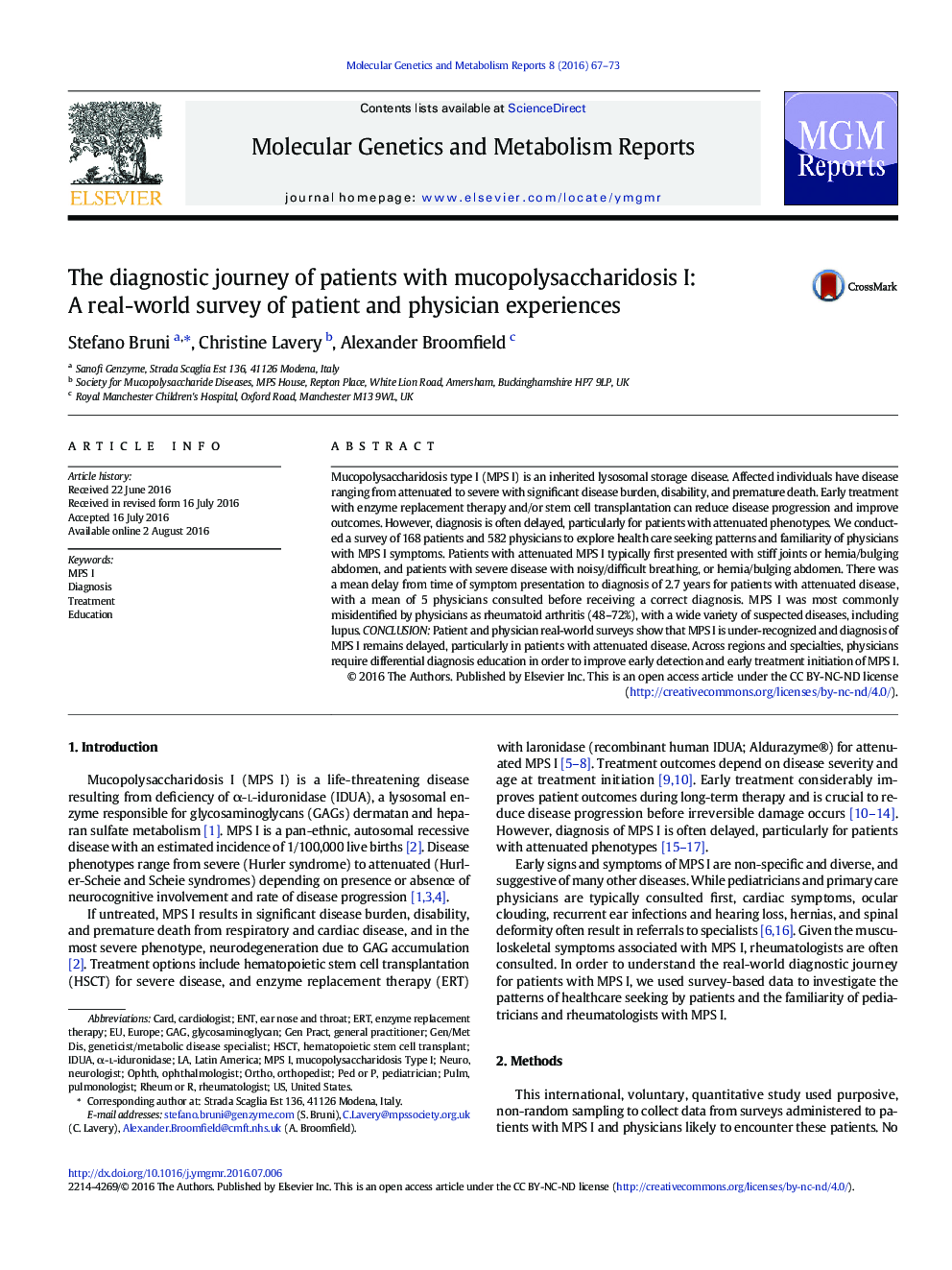| Article ID | Journal | Published Year | Pages | File Type |
|---|---|---|---|---|
| 2058824 | Molecular Genetics and Metabolism Reports | 2016 | 7 Pages |
Mucopolysaccharidosis type I (MPS I) is an inherited lysosomal storage disease. Affected individuals have disease ranging from attenuated to severe with significant disease burden, disability, and premature death. Early treatment with enzyme replacement therapy and/or stem cell transplantation can reduce disease progression and improve outcomes. However, diagnosis is often delayed, particularly for patients with attenuated phenotypes. We conducted a survey of 168 patients and 582 physicians to explore health care seeking patterns and familiarity of physicians with MPS I symptoms. Patients with attenuated MPS I typically first presented with stiff joints or hernia/bulging abdomen, and patients with severe disease with noisy/difficult breathing, or hernia/bulging abdomen. There was a mean delay from time of symptom presentation to diagnosis of 2.7 years for patients with attenuated disease, with a mean of 5 physicians consulted before receiving a correct diagnosis. MPS I was most commonly misidentified by physicians as rheumatoid arthritis (48–72%), with a wide variety of suspected diseases, including lupus. CONCLUSION: Patient and physician real-world surveys show that MPS I is under-recognized and diagnosis of MPS I remains delayed, particularly in patients with attenuated disease. Across regions and specialties, physicians require differential diagnosis education in order to improve early detection and early treatment initiation of MPS I.
